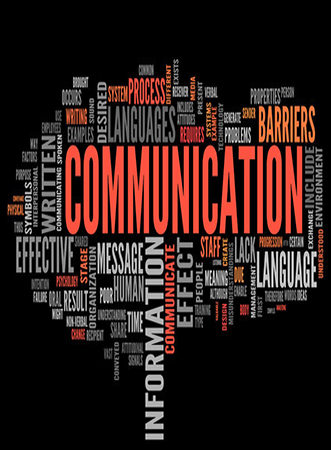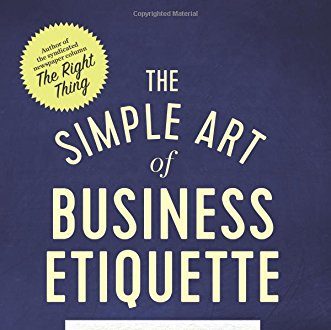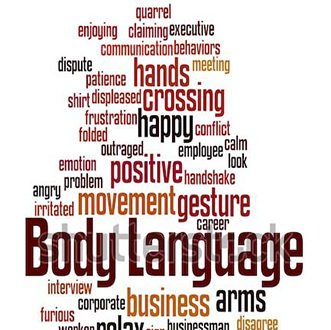
11Kviews
What is there for the day…
We’ll share knowledge We’ll have Fun We’ll Play Roles We’ll learnLET’S DISCOVER THE POWER OF COMMUNICATION…
WHAT DO WE UNDERSTAND BY A “SKILL”?
At the end of the workshop we will learn…
❖ What is Good and what is Bad Communication❖ Some basic skills to become a Good Communicator
❖ To recognize & overcome barriers
❖ Advantages of listening
❖ To speak confidently
❖ To communicate effectively
Research shows, communication is…
body language = 55%words = 7%
style = 38%
Why Communication…
• To express our emotions• Achieve joint understanding
• To get things done
• Pass on and obtain information
• Reach decisions
• Develop relationships
Home Truths about Communication…
• Good Communication can’t exist without honest listening• We do not try HARD to get our message across
• We do not take advantage of various media available to us
• We all could improve our
• It cannot be perfected
Ways & effects of Communication
Formal = Less Flexible, More Accurate but less responsive (JAGRITI…)Informal = More Flexible, Less Accurate but responsive (Grapevine/Rumors)
What is Communication…
• Art of getting your message across effectively through:• Spoken words – first & simplest way
• Body Language – can make or mar
• Written words – reflects importance
• Visuals – leaves greatest impact
Types & Methods
Written = Letters, Memos, Reports…Spoken = Conversations, Interviews, Phone Calls, Requests…
Gestures = Facial expressions, Actions, Voice Tone, Silence, Stance…
Visuals = Photographs, Paintings, Videos, Film…
Multimedia = Television, Newspaper, Magazines, Internet…
Communication : The Flow
– Channel– Delivery
– Formulating
– Message
– Sender
– Feedback
– Perception
– Response
– Understanding
– Receiver
Effective Communication…
• Is scarcer than quality water• Is measured by results or actions
• Does not need to be very complex
• Is aimed at informing others
• Is complete and clear
Communication Skills
Barriers to Effective Communication…
➢ Personal Barriers
• Your style and character (rude, polite, shy, outspoken)• Preparation & presentation
• Lack of clarity (pronunciation, pitch, etc.)
• Lack of credibility
• Timing
Barriers to Effective Communication…
Proper Pronunciation
Communication = Help = PenBuffalo = Career = Guest
Colonel = Buffet = Bouquet
Rendezvous = Bulb = Fax
Prakash = Pradeep = Chandrajeet
Barriers to Effective Communication…
➢ Organisational Barriers• Culture
• Environment
• Size & structure
• Pace of activity
Barriers to Effective Communication…
➢ Process Barriers• Channel/Medium
• Irrelevant Information loading
• Lack of Response or Feedback
• Inappropriate Questions
Overcoming the Barriers…
✓ Say to yourself, “I will get Response”✓ Come up with a topic for discussion everyday
✓ Start improving upon pronunciation
✓ Develop habit of reading – start with the English newspaper / Comics
✓ Understand first, then communicate
✓ Don’t be afraid of asking questions
Body Language…
• Facial Expressions• Gestures
• Posture
Body Language…
Nervousness = Clearing throat, “whew” sound, Whistling, smoking, pinching flesh covering mouth, jiggling money or keys, tugging ars, wringing hands.Frustration = Short breaths, “tsk” sound, tightly clenched hands, wringing hands, Fist like gestures pointing index finger rubbing hand through hair rubbing back of neck.
Openness = Open hands, unbuttoned coat
Defensiveness = Arms crossed, sideways glance, touching rubbing nose, rubbing eyes, buttoned coat, drawing away
Insecurity = Pinching flesh, chewing pen, thumb over thumb, biting fingernail Cooperation = Upper body in sprinter’s position, open hands, sitting on edge of chair, hand to face gestures, unbuttoning coat.
Confidence = Steepled hands, hands behind back, back stiffened, hands in coat pockets with thumb out, hands on tapels of coat
Body Language…
Look out for some more clues on Body Language in the given handout…SPEAKING SKILLS
Speaking…
- French Proverb .
While Speaking…
• Take initiative
• Be polite
• Be pleasant (smile, jokes)
• Be clear and concise (tone, accent, emphasis, pronunciation)
• Cite negative opinions honestly, but in a positive manner
• Seek FeedbackWhile Speaking over phone…
• Write down in advance what you want to say and in what order
• Smile
• Speak slowly
• Always be polite and friendly
• For long messages, follow a script
• Get confirmation
• Monitor your timeWRITING SKILLS
Clarity in Writing…
Rs 1000000000
Rs. 10,00,00,000/-
Rs. 10 CroreWhile Writing…
Plan what you want to say in your letter/ report
Reread the letter when you have finished
Check spelling & punctuation, then send
Use simple language – avoid ambiguous words
“KISS” (Edit the letter by cutting ruthlessly).
Be kind to others’ eyes (font size,clarity)
Be creative (use tables, graphs)
Use the language YOU are better atKeep in mind while writing
➢ Visualize the reader when you are writing
➢ Don’t write unbroken paragraphs
➢ Use numbered paragraphs to make cross-referencing easier
➢ Punctuation plays the role of body language in writingKeep in mind while writing …
• Use headings and subheadings.
• Use ruled sheets instead of plain ones.
• Don’t print without thoroughly checking your sources.LISTENING SKILLS
Listening – why is it important?
Order in which we learn Listening = 45%
Speaking = 30%
Reading = 16%
Writing = 9%
Order In which we are taughtObjective of Listening is…
• To receive information
• To understand effectively
• To enhance clarity
• To empathizeSo, while Listening…
• Avoid distractions
• Do not interrupt unnecessarily
• Be active (show interest)
• Paraphrase what you’ve heard
• Throw an echoWhat Listening Looks like…
➢ The Listener keeps looking at the speaker
➢ The Listener’s body is in ‘open’ position
➢ The listener is smiling with a pleasant &
➢ Encouraging expression
➢ Listener looks relaxed but alert, neither tense
➢ Nor slouching
➢ Listener utters humming soundsPRESENTATION SKILLS
While Presenting…
• Research (find out facts & figures)
• Prepare (Introduce, Discuss, Conclude)
• Rehearse
• Be confident
• Present
• Use proper media5 styles of communicating to manage conflicts
“Go for it” = You feel confident but uncooperative = You win and other person loses
“Run Away” = You don’t feel confident or cooperative = You lose
“Yes, Boss” = You feel cooperative but unconfident = You let the other person win
“Let’s Trade” = You feel partly cooperative & confident = You both win a bit and lose a bit
“Let’s both win” = Mutual Cooperation & Confidence = You help one another to win“I HEAR, I forget I SEE, I remember I DO, I understand”
add a comment



